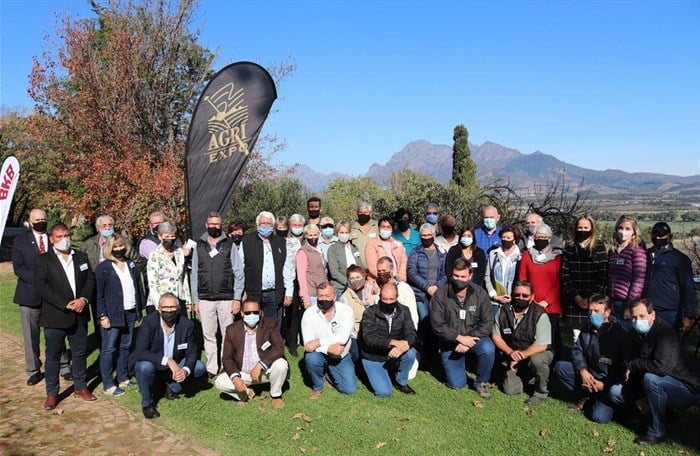
Top stories






More news



Marketing & Media
Capitec’s new jingle makes banking fees as easy as 1, 2, 3, 6, 10















The aim of the annual event is to offer a platform to exchange ideas, stimulate new thinking patterns, discuss trends in agriculture and coordinate show dates. This year's theme was Hope in Challenging Times, with several local roleplayers as well as an international show sharing stories of hope.
Johan Ehlers, CEO of Agri-Expo says that agricultural shows are struggling due to the Covid-19 pandemic and it is essential to intervene to ensure the future of agricultural shows. In his overview of Covid protocols, Ehlers pointed out that restrictions on the number of visitors are not consistently applied to different events such as agricultural shows and markets. "We want consistency from government in terms of event restrictions," said Ehlers.
In Australia, in 2020, the government approved an extra grant of 36 million Australian dollars (R382m) to agricultural societies after most agricultural shows were cancelled. According to Ehlers, thanks to the initiative of Agri-Expo, several agricultural shows in the Western Cape, many of which have been postponed for the second consecutive year, have benefited from a special ministerial award from Dr Ivan Meyer, the Western Cape Minister of Agriculture.
In his speech, Meyer emphasised the importance of agricultural shows’ economic impact and job creation in local communities, as well as shows' contribution to social cohesion. Meyer declared co-operation between shows and municipalities a priority, because "agricultural shows are central to local economic development".
John Bennet, ringmaster of the Sydney Royal Show in Australia, called in live via Zoom to explain how this show, which was cancelled in 2020 only two weeks before the show date, had to adjust to be able to show in 2021. According to Bennet, restrictions in Sydney pertain to one person allowed per two square meters, regardless of inside or outside.
With stringent Covid protocols in place, the Sydney Royal show could, therefore, receive 800,000 visitors over twelve days, more than 60,000 visitors a day. They particularly made use of technology, such as heat detection for crowd control rather than counting individuals.
Jurie Uys from Heidelberg Show shared how this agricultural society, with the support of the whole community, was able to raise more than R100,000 when they sold 2,731 hamburgers over two days in April. "The result is that we can keep the gates of the show grounds open for a further 11 months," said Uys.
Isabeau Botha, corporate communications manager of Agri-Expo, gave training on how agricultural shows can communicate smartly in challenging times. Botha discussed the "value of doing things differently, the value of consistency and the value of collaboration" with reference to recent Agri-Expo projects and marketing campaigns.
Pierre Vlok, BKB Manager: Wool and Mohair (Western Region) singled out the Western Cape agricultural shows for their neatness and high standard, thanked the agricultural media for the exposure given to these shows, and praised South African breeders for the “huge leap in the field of breeding progress over the last decade”.